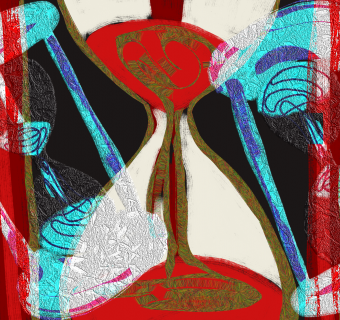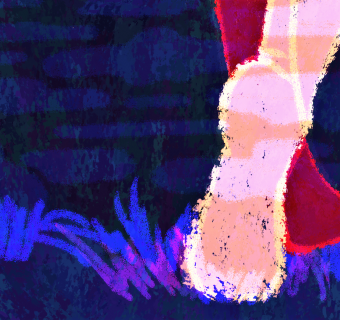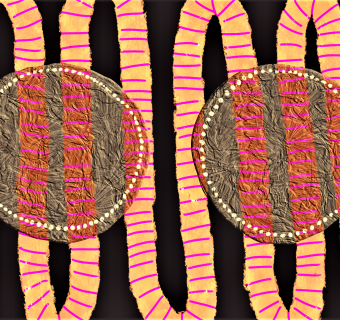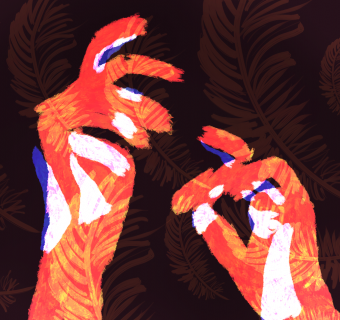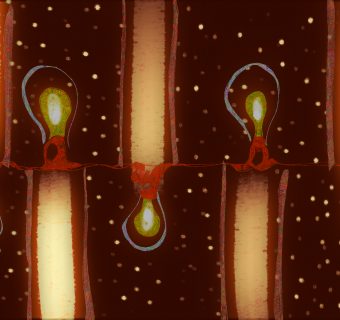Olivia Knott
I have no idea what I am doing. While I applaud those who take this as a challenge to further engage themselves in the U.Va. community to find out what they want from school and life, I shamefully admit that for me, this panic-inducing uncertainty has manifested itself in academic disinterest. I’ve continually thought to myself, “just get through college, you can always figure out what you want after.” Yet with my college years passing by, it is no longer possible to ignore wasting my passion for learning with my parents’ and my own money to “just get through.” If forging full speed ahead to finish my education is not the answer to finding some sort of self-purpose, then perhaps taking a step back will provide me with the greater sense of clarity that I desire. What if I… dare I consider it? Take time off.
When the majority of your peers plan on graduating in a tidy and linear four years, the decision to put your formal education on hold at any point is a daunting one, a choice you hope results in a meaningful life experience. Cue the spiritually enlightening backpacking trip through the Himalayas, right?
A recent New York Times article on the costliness of gap year programs notes that, “American gap year programs… run to $10,000 and up for about three months,” a cost that can quickly add up. The article cites the growing popularity of USA Gap Year Fairs, which provide students with resources to a variety of programs, including Thinking Beyond Borders, whose yearlong program costs a whopping $29,500 before even including airfare. And here I thought I wanted to save my parents’ money while on my East Asian adventure… However, the self-reflection desired during time off from school can begin at very little cost, through opportunities in your hometown. Boston native Caitlin Kingston, a rising third year, chose to take a gap year before beginning college, using her freedom to foster one of her passions: the culinary arts. “I’ve always loved baking and food. It was weird because I had never thought of that as something for me to do, but once I did, it seemed so obvious,” she said. After finding a list of the 50 best restaurants in Boston, she contacted numerous and spent part of her gap year shadowing the different aspects of fine dining in some of the most critically acclaimed kitchens in the city. Alanna Fagan, now a third year English and Spanish double major, admits that her first year, “in the fall, everything was new” but by spring, she “[…] just got overwhelmed coming to such a big school and got lost in the whole social part.” She decided to take off the following summer and fall semester, moving to Peru through Ubelong, a volunteer program she discovered in a social entrepreneurship class at U.Va. She cites the strength of the program, in that it was about “social benefit, rather than commerce based.” The program places volunteers individually throughout the world, based on their area of interest. Fagan spent the next two months teaching preschool, while staying in a volunteer hostel. “I ended up paying about $800 for two months of living, including meals, which is ridiculous because that’s [similar to] one month’s rent in Charlottesville!”
Both Kingston and Fagan sought out experiences that maintained the refreshing adventure desired from a gap year in an economically obtainable way, and more so greatly benefitted from the discipline of work ethic that they continued to utilize while not in formal schooling.
These types of experiences gave the young women unique insights as they entered university at different periods of life. After her year off and strongly considering obtaining a degree specializing in the hospitality industry, Kingston finally chose U.Va. for its comprehensive liberal arts curriculum. Working at a vineyard, Kingston still remains devoted to her foodie interests, but has chosen to pursue her interest in arts and community involvement through an arts administration degree. However, she cites the events of her gap year as integral to “having a break to learn what I wanted to learn and re-appreciating education” and importantly, “learning to appreciate different kinds of education.” “As cliché as this sounds [Charlottesville] is a bubble, and breaking through that was refreshing,” said Fagan about her time in Peru. “There was so much out there that I had not even dreamed about.”
 Photo Courtesy of Alanna Fagan
Photo Courtesy of Alanna FaganFagan visited Machu Pichu during her time in Peru.
Following that summer, Fagan returned home to work as a server for six months. After experiencing working full-time in the service industry, Fagan admits that the uncertainty of such a fluctuating line of work made her realize that “I took my education for granted, and that changed so much when I was home.” Hands-on experience might just be the kick-start I need to better envision how my academic goals will help turn my interests into actual career possibilities. I always imagined myself working in entertainment in some capacity, and have recently begun to look into programs such as BBC work experience. Kingston and Fagan both cited a fear of lack of community upon leaving school. Yet, Kingston noted that the greatest benefit she received from her time off was that, “you learn to be comfortable being alone. Which is good because you’re the only person you’re going to be with for the rest of your life.”
 Photo Courtesy of Caitlin Kingston
Photo Courtesy of Caitlin KingstonKingston visited Diamond Head State Park, while working in Hawaii for five weeks during her gap year.


